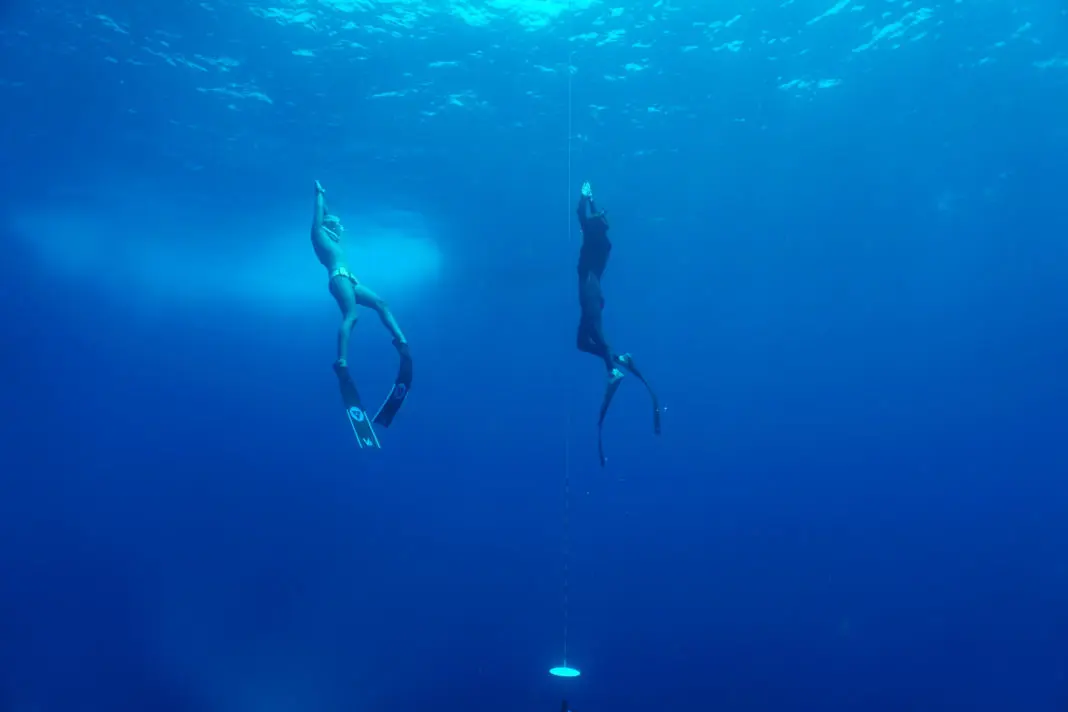Researchers have developed a wearable, smartwatch-like device that tracks freedivers’ heart rate, brain oxygen levels and blood volume during deep dives.
The device uses near-infrared spectroscopy (NIRS), which was originally developed by Artinis Medical Systems in the Netherlands and subsequently adapted to withstand deep water pressure by scientists at the University of St Andrews.
Chris McKnight, a scientist at the University of St. Andrews and lead author of the study, told phys.org:
“We measured heart rates as low as 11 beats per minute and blood oxygenation levels, which are normally 98 percent oxygenated, drop to 25 percent, which is far beyond the point at 50 percent at which we expect people to lose consciousness and equivalent to some of the lowest values measured at the top of Mount Everest.”
McKnight added that freedivers make an interesting group to study:
“Beyond the exceptional physiological responses that freedivers display and the extremes they can tolerate, they may be a very informative physiological group. Their physiological reactions are so unique and the conditions they’re exposed to are not easily replicated, so they offer a unique way of understanding how the body responds to low blood oxygen, low brain oxygenation and severe cardiovascular suppression.”
McKnight and his colleagues’ research results were published this week in “Philosophical Transactions of the Royal Society B.”
If you’re scientifically inclined, you can read the report here.

